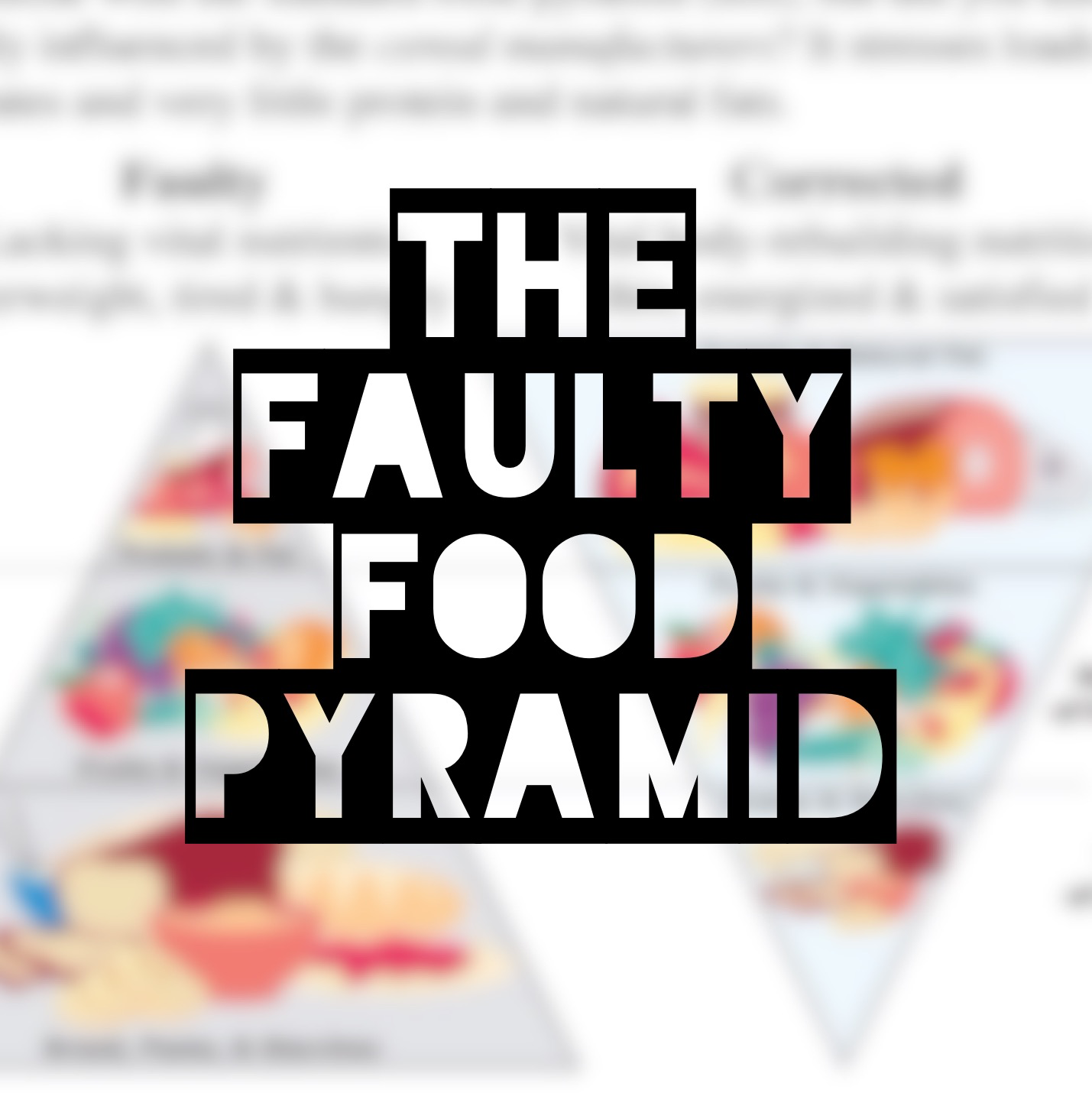The word nutrition has become a word that many people fear nowadays because of all the misinformation we’re bombarded with whenever we so much as think to look into learning more about it. From one fad diet to the next, how can we know which is the real deal and which will garner the most significant results in the most sustainable way? It’s certainly not easy and I’ve had my fair share of experimenting with my diet and being disappointed just as I’m sure many of you have too. Well, to start, I’m going to show you how one of the very first things we’re ever taught about nutrition (in school no less) is wrong, and why it’s wrong.
As you can see, the pyramid we’ve become so familiar with is supposed to be inverted in order to be correct and how is it that we’ve been taught in a federal school system something that is wrong? Well, as the image says, the standard food pyramid was influenced by the cereal manufacturers and the reason they were able to influence something so integral to our daily lives is money (what else?!). You see, the corn and grain industry is one of the biggest industries in the United States with total crop sales for feed crops (corn, barley, oats, sorghum and hay) and food grains (wheat and rice) being $69.5 billion in 2012. What this means is that the industry lobbyists have a lot of power behind them to affect public policy and regulations. After all, you just have to look at the sugar industry to see it all happening again today, and given that most of the sugar in the US is now corn derived (high fructose corn syrup) it’s basically the same industry using the same tricks. There’s a reason we don’t have a daily recommended intake for sugar when we do for almost everything else and it’s because they don’t want us to be aware of just how much sugar we’re consuming and in doing this they're encouraging a nation wide addiction. In fact, sugar has been proven to be more addictive than cocaine and sugar is the main contributor to obesity and heart disease, the leading cause of death in the US (40% of the total annual deaths are therefore preventable - at least temporarily).
Two documentaries I highly recommend that are related to this are In Defense of Food and Fed Up (click posters for trailers):




